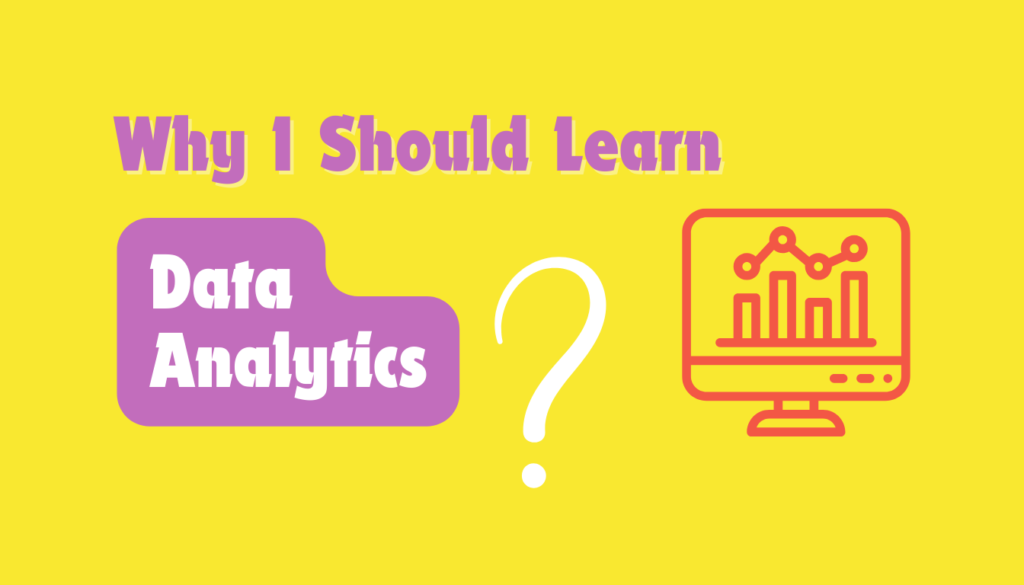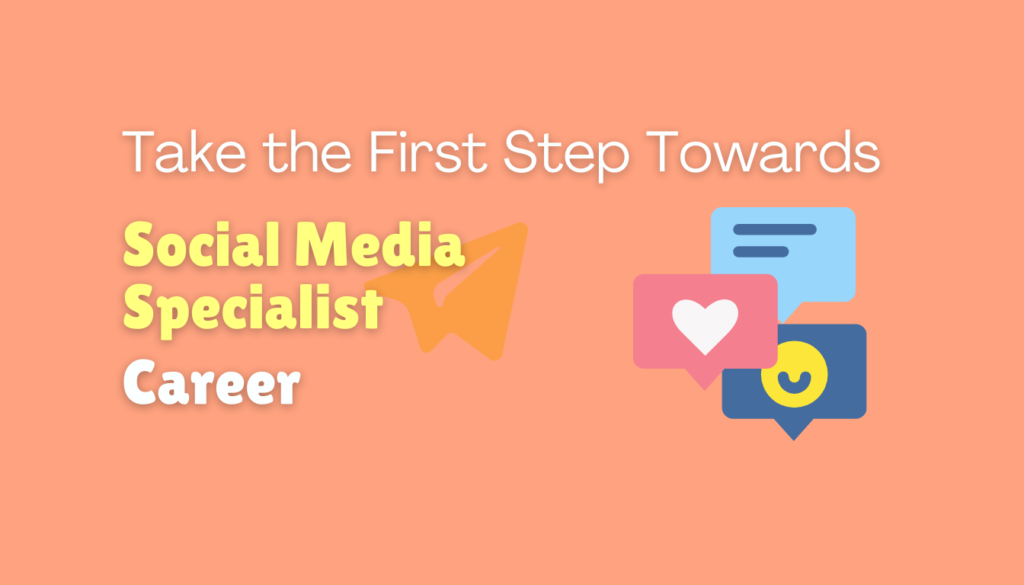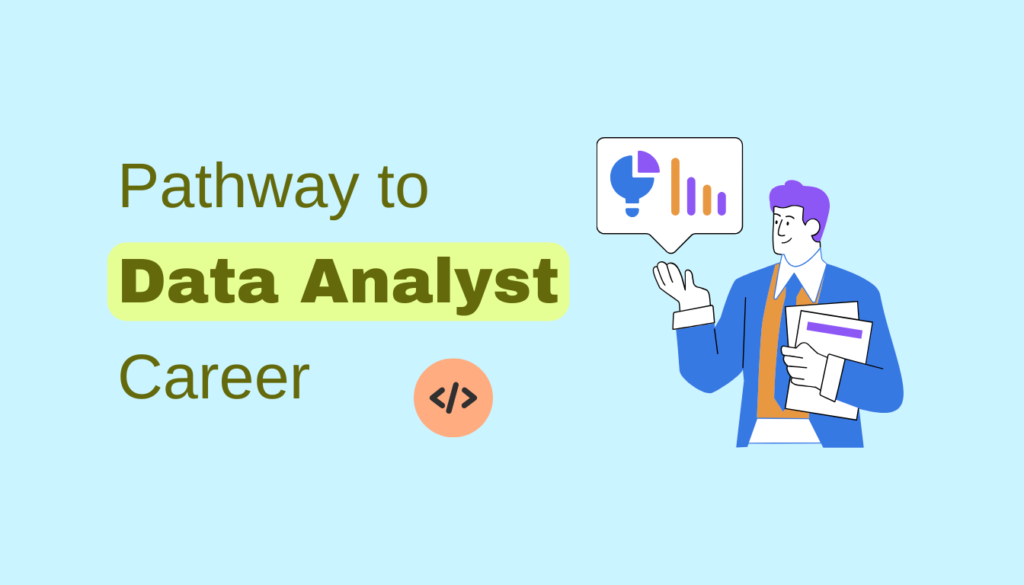In today’s world, asking “Why should I learn data analytics?” is important.
Data is all around us, from what we like to big trends in business.1
Many companies, including tech giants and insurers, use data analytics a lot. They do it to make customers happier, improve their stuff, and stay ahead of the competition.2
There’s a big need for people who understand data. They can make a good amount of money too. This means it’s a great time to get into data analytics.
But why exactly is this field so interesting?
Let’s explore the top reasons why learning data analytics can really impact your career and life.
Why I Should Learn Data Analytics?
Data analysis really changes the game. It’s amazing how data can steer us clear of assumptions.
With the right skills, you can crack tough problems or find answers to puzzling questions. Things that used to be a complete mystery suddenly have a solution.3
Before, people had to rely on old reports and make educated guesses. Now, we can look forward using predictive tools. This means telling what might happen next using what we know.
Then, we can use that to come up with the best plan, using prescriptive analytics.3 For me, shifting to this approach was mind-blowing. It made me see the real power and potential of data analytics.
Learning never stops in data analytics.3 There’s always something new to pick up. This field moves fast, always offering fresh challenges.
If you enjoy learning, this field is a goldmine. You can dive deep into any topic or learn new tricks. In data analytics, you must keep learning to stay ahead.
Luckily, there’s a wealth of learning materials online, with many being free or affordable.3
Choosing a path in data analytics can lead to great rewards.4 It’s a field where the need is high, so you’ll likely earn well and be in demand. Companies everywhere are on the hunt for skilled data analysts.4
Working in data analytics opens doors in many areas like education, finance, and health.4
As data grows, so do the opportunities for those skilled in analysis. Everyone from startups to major corporations depends on data professionals to help them succeed.3
1. Data-Driven Decision Making
Data is key for making decisions better and faster today. It’s amazing how data can remove the guesswork from our choices.
We no longer just rely on looking at what happened before to predict the future.
Now, we jump into using predictive analytics to forecast outcomes based on past data. And then, with prescriptive analytics, we can pick the best actions.
Data-driven decision making helps organizations find reasons for problems and see how different areas are connected.
By looking at these data points, they can come up with more accurate ideas and better solutions.5
Organizations that rely heavily on data are much more likely to improve their decision-making. This is compared to those who don’t use as much data.5
Also, nearly half of the Fortune 1,000 companies found that using data to cut costs is valuable. Plus, they benefit from big data investments with cost savings and better efficiency.5
Not to mention, senior executives agree that data-driven decisions really help. They lead to major improvements in decision-making.5
Data-driven decision-making tools make departments work better together. This improves how they plan and makes the company smarter and more profitable.6
Working with data exposes new chances for businesses. It gives a deep view of what they’re doing, leading to smart decisions for growth.6
Using data also saves time and money. It makes sure decisions are based on good information, which helps use resources better.6
Making choices based on data means companies can quickly adapt to new trends. This makes them stronger in their markets and more profitable.6
Companies that highly value data see big benefits. They’re more productive and make more money. This was shown by a study by professors at MIT Sloan School of Management.6
The spread of data analytics and intelligence tools means you don’t have to be a data expert to use them. Anyone can analyze the data and find useful insights.6
NewVantage Partners found that almost all business leaders want a culture that values data. But not even a third of them feel they’ve achieved it.7
A 2018 IDC study showed that most modernization plans fail because companies lack a strong data culture. This is needed to support their investments in technology.7
For example, Lufthansa Group became 30% more efficient by using an analytics platform in all its 550 branches.7
And Providence St. Joseph Health, with 51 hospitals, got better and cheaper healthcare. They did this by sharing data openly and clearly with everyone, using dashboards.7
Every business can make customers happier by using data wisely. This is what the Charles Schwab Corporation did. They support experts and newcomers alike with their BI platform.7
By bringing together information from over 100 sources, Tinuiti helps over 500 customers see the full picture of their brand’s efforts.7
JPMorgan Chase now understands customers better thanks to a modern data tool. It helps them make better choices about products and designs.7
Boeing uses dashboards to predict airplane needs for the next 15 years. This gives them a clear vision of the future market.7
2. Continuous Learning and Growth
The world of data analytics offers endless chances to learn new things. Technology is always moving forward, which means there’s always something new to explore.8
For those who love to keep learning, this is really exciting. You can go deep into certain areas.
Or you can learn other skills like statistical analysis or data visualization. In a field that’s always evolving, growing and learning are key to doing well.9
It’s good news that top-notch online learning resources are easy to find. Most of them are either free or very affordable.9
This means it’s simpler than ever to keep learning and advance your career in data analytics. The sheer amount of ways to grow and learn is what makes this field so vibrant and promising.8
3. Indulge Your Curiosity
In data analytics, there’s always a new puzzle to solve.10 Once you know the basics, you can look at many interesting topics.
This includes fun things like helicopter prison breaks or serious stuff like who visits the White House.
You can even learn about yourself by checking things like all your Amazon buys.10 This tech lets you see your life in a whole new way.
Finding cool new datasets is just the start. Data analytics curiosity can also mean seeing what others discover.
Many people share their finds online. Visit spots like “Spurious Correlations” or “Weird Data Science” for a peek.
So, even when you’re not exploring your own data world, there’s lots to check out. The data exploration realm is filled with others’ fascinating work to enjoy.10
4. The Thrill of Discovery
The world of data analytics is exciting. There’s a buzz in exploring datasets. You just dive in and see what you find.11
Even with a clear goal, there’s a lot to learn. We might find more data, fill in missing parts, or add context.11
When we look at data, we often get more questions than answers. And that’s okay, it’s actually fun.11 It fuels our curiosity.
We want to know more, dig deeper, and find solutions to harder problems.11 This excitement is what draws many to data analytics. It’s both challenging and rewarding.
5. Data Cleaning Satisfaction
Data cleaning might not excite everyone, but it’s crucial and very rewarding. Data cleaning and transformation turns messy, raw data into a neat, usable set.
This set can reveal important insights.12 Changing chaos into something clear is fulfilling. It helps make smarter choices based on data.
Many might not love data cleaning, but we see its value. It’s like finding treasure in the data – spotting trends, fixing mistakes, and making everything neater.12
This careful work is vital in data analysis. It makes sure the data we use is correct and trustworthy.13
Getting data ready well is crucial for powerful analytics.14 Cleaning and organizing our data gives us confidence.
We believe in the quality of our findings. This step lets us use data fully. We can solve problems, spot new trends, and make real changes.12
6. Creativity and Problem-Solving
Data analytics needs a lot of creativity. Data storytelling and making tools like Tableau look good involve creativity.
Data analysts use this skill to find insights and tell interesting stories.15 Being creative helps a lot in finding new answers while looking at data or fixing problems.15
Problem-solving skills connect well with creativity. Data analytics mixes thinking smartly and imagining.
This mix changes data into stories that can help companies.15 16 Being curious and learning from different areas helps with creative solutions and new ideas.15
Today, mixing data analytics with creativity is key.16 Creating teams with different skills helps a lot. It boosts working together and sharing ideas for better solutions.16
At the core, data analytics is not just numbers. It’s about using logic and creativity. Data-driven stories and real change come from both parts of our minds working together.15 16
7. Supportive Community
The data analytics community is lively and supportive.17 With over 3,000 units in the US, it shares research from universities widely.17
This network offers many experts, resources, and advice to those who love data.17
Online places like Reddit and Discord are full of kind people who help each other out.18
Ravit Jain encourages us to join freely, highlighting the welcoming vibe.18 This kindness is key for our growth in the data world.
On LinkedIn, we find a welcoming space to connect with others and learn more.18
Jain suggests we use Slack and Discord for feedback on our work.18 These tools make improving our data skills easier within this caring community.
The Cooperative Extension System and others are crucial for this supportive network.17 They support us with what we need to make smart, data-based choices.17
This all helps us to learn and succeed in the changing world of data.
8. Automation with Python
Learning Python opens up many exciting opportunities.19 We have focused a lot on analyzing and visualizing data.
Now, we are diving into the world of automation. Next up, we’re excited to automate tasks in Excel using Python.19 Its applications in data analytics can make our work faster and more efficient.
Python shines in data analysis because of its powerful libraries. These include NumPy, Pandas, and more.
They are made for manipulating, analyzing, and visualizing data.19 It’s best to use Python 3.x for its latest features.19
As for where to write your code, consider IDEs like PyCharm and Jupyter Notebook.19 With Pandas, working with different data types, like CSV and SQL, is easy.19
When working on data, important Python libraries are numpy, pandas, and others.19
Doing an Exploratory Data Analysis (EDA) helps you understand your data.19 Sklearn, another library, gives you tools for different machine learning tasks.19
For example, in linear regression with Scikit-learn, you’d prepare your data, train the model, then use it to predict.19
Showing your findings in visuals can help others understand your work better.19
9. Practical Data Literacy
Understanding statistics and probability changes our view of the world. With data literacy, we learn to question data.
This helps everyone, not just data experts, be more critical.20 Learning data skills is important for many different jobs, not just the ones focused on data.21
Interpreting data and critical thinking are key. They help us make sense of all the graphs and data we see daily.
Being literate in data means we can judge if data is good or not. This leads to better choices.20
In all fields, using data well is vital for success.20 Those who understand data feel more sure of themselves at work. They can help their company do better.21
Using data for decisions helps teams work together better. It aids in understanding business goals and issues.21
To get better at analyzing data, keep learning and thinking critically, and work on communicating well.20
Understanding data basics, like types of data and stats, is a good start. Also, learning to read visuals and check data’s quality is important.20
By learning practical data skills, we become better decision-makers. We can tackle hard problems and find new insights. This can lead to real change.21 22
Conclusion
Data analytics is an awesome field. It helps us make better decisions and find new solutions. It’s full of chances to learn, be creative, and work with others.
Plus, it pays well. So, if you’re thinking about your future, learning about data could be a game changer.23
Wanna change the world? Or maybe just make smarter choices?
Learning data analytics is a great move. There’s a big need for people who get data. And the job market is growing fast. That means finding a good job could be easier.23
Making a lot of money sounds nice, right? In data analytics, it’s very possible. The average salary is over $100,000. With some earning more than $167,000.
To reach the top, some folks get advanced degrees. These jobs can be in charge of big projects or teams, like managing marketing information.23
Think data is just for big tech companies?
Think again. It’s helping all kinds of businesses.
From traveling to healthcare to shopping, companies are using data to do better. They learn more about what their customers want and fix any issues.
Whether it’s looking back, seeing what’s going on now, or guessing what could happen next, data is at the heart of it all.24
Source Links
- https://bau.edu/blog/benefits-of-data-analytics/
- https://lpsonline.sas.upenn.edu/features/5-key-reasons-why-data-analytics-important-business
- https://www.linkedin.com/pulse/complete-guide-learning-data-analytics-100-days-brittany-city
- https://junocollege.com/blog/why-everyone-should-learn-data-analytics/
- https://online.hbs.edu/blog/post/data-driven-decision-making
- https://www.rib-software.com/en/blogs/data-driven-decision-making-in-businesses
- https://www.tableau.com/learn/articles/data-driven-decision-making
- https://pushmetrics.io/blog/the-continuous-learning-imperative-for-the-aspiring-data-analyst/
- https://www.linkedin.com/pulse/how-continued-learning-can-help-data-scientists-solve-ronald-van-loon
- https://www.linkedin.com/pulse/10-reasons-i-fell-love-data-analytics-why-you-might-too-annette-dolph
- https://dev.to/fizza_c3e734ee2a307cf35e5/my-data-science-journey-from-beginner-to-aspiring-maste-471k
- https://www.ccslearningacademy.com/top-data-cleaning-techniques/
- https://www.syntaxtechs.com/blog/practical-tips-for-effective-data-cleaning-in-analytics/
- https://www.repustate.com/blog/data-cleaning-techniques/
- https://www.pecan.ai/blog/unleash-your-creativity-data-analyst/
- https://www.aihr.com/blog/integrating-creativity-and-data-analytics/
- https://issues.org/helping-communities-use-data-to-make-better-decisions/
- https://www.discoverdatascience.org/articles/the-significance-of-data-community-building/
- https://medium.com/@theethicsgeek/automating-data-analysis-with-python-a-step-by-step-guide-a0ed100c4e53
- https://medium.com/learning-data/unlocking-insights-the-crucial-role-of-data-literacy-in-effective-data-analysis-1754029fa67c
- https://atlan.com/what-is-data-literacy-and-why-is-it-important/
- https://www.tableau.com/data-insights/data-literacy/what-is
- https://www.bridgeport.edu/news/power-of-data-analytics-in-business/
- https://www.investopedia.com/terms/d/data-analytics.asp





